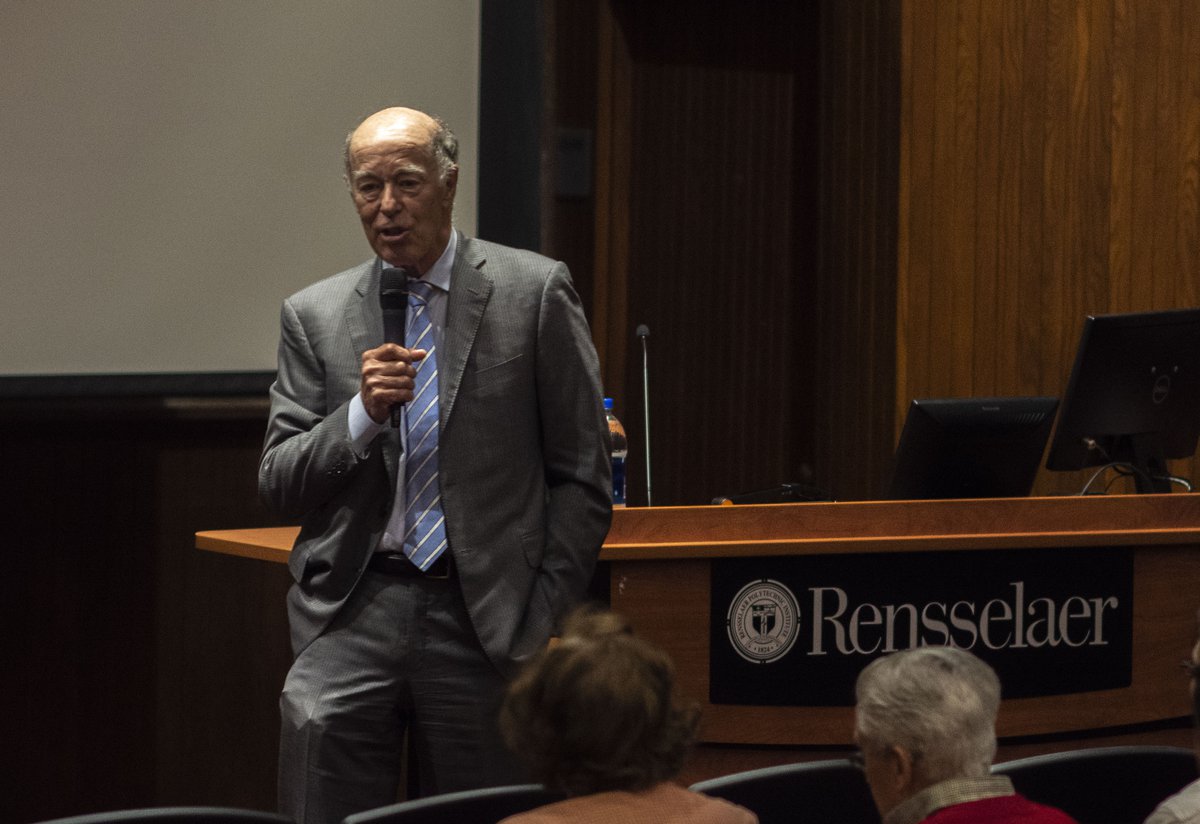Knoblauch shares her story of success and mental illness
On Saturday, the Rensselaer Union hosted the 2019 Student Leader Summit. The event included conference-style “choose-your-own” workshops, breakfast, lunch, and a special keynote presentation featuring Heidi Knoblauch, the owner of the Plumb Oyster Bar in Downtown Troy. Workshops focused on professional and organizational development, skill building, and personal development.
Knoblauch received her master’s in History of Science and Medicine and doctorate in History from Yale University, and achieved her dream job of running an academic department all before she turned 30. However, she realized that her job did not fulfill her, so she left and set out to start her own business in Downtown Troy, the Plumb Oyster Bar. The bar serves fresh oysters which are delivered daily, craft spirits, and unique foods, all made from locally grown ingredients. Her experience running her restaurant inspired her to found Receipt HQ, a startup dedicated to providing restaurant managers with an electronic solution to the outdated practice of saving thousands of receipts. The application scans signed receipts and enables managers to search them and produces useful analytics. As the title of the event suggested, RPI students expected to hear her advice regarding leadership and entrepreneurship.
Knoblauch first provided students with a brief summary of her time in college and her experiences in academia, but soon cast these accomplishments aside and shared her personal struggles with mental illness. She described having “mood swings that coincided with the seasons” in high school and spurred periods of hallucinations and delusions in college. She remembered “going into intense suicidal depression” and recounted her father being genuinely scared, telling her that life was worth living. Despite these warning signs, she had avoided treatment.
During the talk, she recounted her sudden feelings of urgency: leaving the University of Rochester for New York City, trying to buy a coffee shop in Manhattan, jumping on a plane, traveling around Europe for a month, staying in total strangers homes. Each period was followed by a crash of numbing depression. After being diagnosed with bipolar disorder, which she described as a disorder of energy, she decided to take a leave of absence from her position at Yale University, and expressed her struggle and embarrassment in doing so.
Knoblauch reflected that she fears that she will be seen for her mental illness instead of for who she is, and that her ideas will be interpreted through the lens of her disorder. She acknowledged, “It would be disingenuous to frame my story of success without explaining the story of my mental illness.” Furthermore, she emphasized that college students are the population at risk for mental illness, and reassured students that ”bipolar is treatable, depression is treatable. If you are struggling with any type of mental illness, there is hope.”
During her teaching position at Bard College, she realized that academia was not the right place for her to create the impact she strived to make. Then came another wave of urgency. She left for Troy during its restaurant-driven renaissance, nervous to “give it all up” and “have a fresh start.” Nevertheless, she harnessed her passion and energy to start her restaurant. She shared that the restaurant is almost an external manifestation of her bipolar disorder, and helped her heal in a time “that her profession did not suit her personality.” This did not mean, however, that her bipolar disorder was cured. She still had downfalls with depression, alcohol, and drug abuse.
Ultimately, she admitted that although she framed her story as “she got help and got a happily ever after,” she continues to deal with her bipolar disorder. “The only reason I am a success is not because of any of these accomplishments, but because I refuse to let my mistakes dictate my future,” she said. “If you truly accept that failure is the best place to learn, it is those moments that propel you to success.”
Knoblauch shared her journey in learning to accept her bipolar disorder as a part of herself, and stated that perhaps her restaurant would not be open today if it weren’t for her disorder and the rapid changes of energy that accompanied it.
Students in the audience were thoroughly engaged, and many connected with her battle with mental illness through thoughtful questions. One student asked if she still struggles with mental illness today. Knolblauch answered that taking care of your mental health is like working out: you get better at it with practice. She pointed students to health and counseling services at RPI, which she noted were not available during her time at college.
Knoblauch’s keynote provided students with a reminder that even accomplished people battle with mental illness, a message perhaps far more important than a lesson on how to be a leader or entrepreneur. Waking up early on Saturday morning for the event was undoubtedly worthwhile, and I encourage those who did not attend the event to read more about Knoblauch online.

 Guest Speaker
Guest Speaker
 Community Recipes
Community Recipes
 Empac Event
Empac Event
 Editorial Notebook
Editorial Notebook